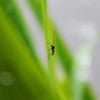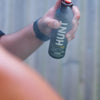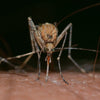The DEET Debate: Why Some Countries Are Banning It and the Safer Alternative You Should Consider

For decades, DEET (N,N-Diethyl-meta-toluamide) has been the go-to insect repellent for millions worldwide. It effectively wards off mosquitoes, ticks, and other biting insects, reducing the risk of diseases like malaria, Zika, and Lyme disease. However, concerns over its potential health risks and environmental impact have led some countries to impose bans or restrictions on its use.
Fortunately, there’s a better alternative: Picaridin. Unlike DEET, Picaridin offers strong, long-lasting protection with fewer risks, making it the superior choice for those seeking a safer way to repel insects.
Why Is DEET Controversial?
Despite its effectiveness, DEET has raised serious concerns, leading to restrictions in several countries. Here’s why:
1. Potential Health Risks
- Neurological Concerns: Excessive exposure to DEET has been linked to dizziness, headaches, and, in rare cases, seizures. Some studies suggest potential neurotoxicity, especially in children.
- Skin and Eye Irritation: DEET can cause skin rashes, redness, and itching. If it comes into contact with the eyes, it may result in severe irritation.
- Respiratory Issues: Inhalation of aerosol sprays containing DEET can lead to coughing, throat irritation, and breathing difficulties.
2. Environmental Impact
- Water Contamination: DEET does not break down easily in nature and has been detected in rivers and lakes, raising concerns about its effect on aquatic ecosystems.
- Harm to Wildlife: Studies show that DEET can be toxic to certain fish and insect species, potentially disrupting the environment.
Countries That Have Banned or Restricted DEET
Due to these concerns, several countries have imposed restrictions on DEET:
- Canada: The country has limited DEET concentrations to 30% in consumer products, banning higher percentages due to safety concerns.
- European Union: The EU has evaluated DEET’s risks and imposed regulations, with some countries enforcing stricter controls than others.
- France & Denmark: Both have previously restricted DEET due to health and environmental concerns.
Why Picaridin Is a Safer, More Effective Alternative
If you’re looking for a safer way to keep bugs away, Picaridin is your best option. Developed in the 1980s as a synthetic version of piperine (a compound found in black pepper), Picaridin has gained popularity for its safety and effectiveness.
Benefits of Picaridin Over DEET
✅ Just as Effective (or More So!): Picaridin provides comparable or better protection than DEET against mosquitoes, ticks, and other biting insects.
✅ Non-Toxic and Safe for All Ages: Unlike DEET, Picaridin is not associated with neurotoxicity and is considered safe for children and pregnant women.
✅ No Skin Irritation: Picaridin is gentle on the skin, making it a better choice for those with sensitive skin.
✅ Odorless and Non-Greasy: Unlike DEET’s strong chemical smell and greasy texture, Picaridin is virtually odorless and dries quickly.
✅ Won’t Damage Clothing or Gear: DEET can degrade plastics and synthetic materials, but Picaridin is safe to use around outdoor gear, sunglasses, and clothing.
Other Natural and Synthetic Alternatives
While Picaridin is the best alternative to DEET, other options include:
- Oil of Lemon Eucalyptus (OLE): A plant-based option recommended by the CDC, though it requires frequent reapplication and carries a strong unpleasant odor.
- IR3535: Commonly found in European repellents, effective but not as long-lasting as Picaridin.
- Essential Oils (Citronella, Peppermint, Lavender): These provide mild protection but are significantly less effective than Picaridin or DEET.
The Verdict: Choose Picaridin for a Safer, Smarter Repellent
As more countries move to regulate or ban DEET due to its risks, Picaridin stands out as the best insect repellent alternative—just as effective, but safer for humans, wildlife, and the environment. If you want long-lasting protection without the drawbacks of DEET, Picaridin is the clear winner.
-
Posted in
bugspray, clean ingredient, Deet Free, EPA approved, mosquito, Mosquito control, Mosquito spray, Safe Alternative, Scent Free, Skin




